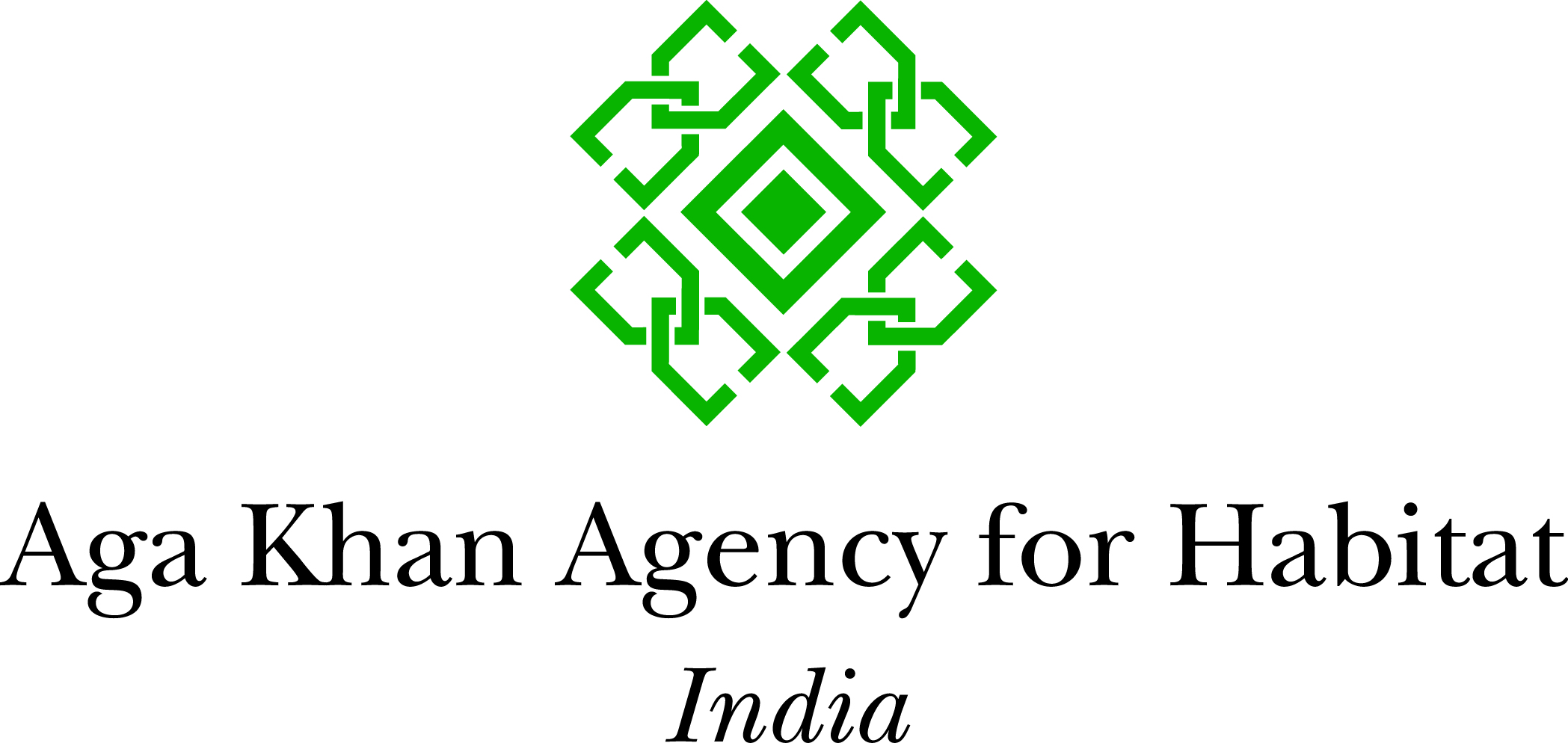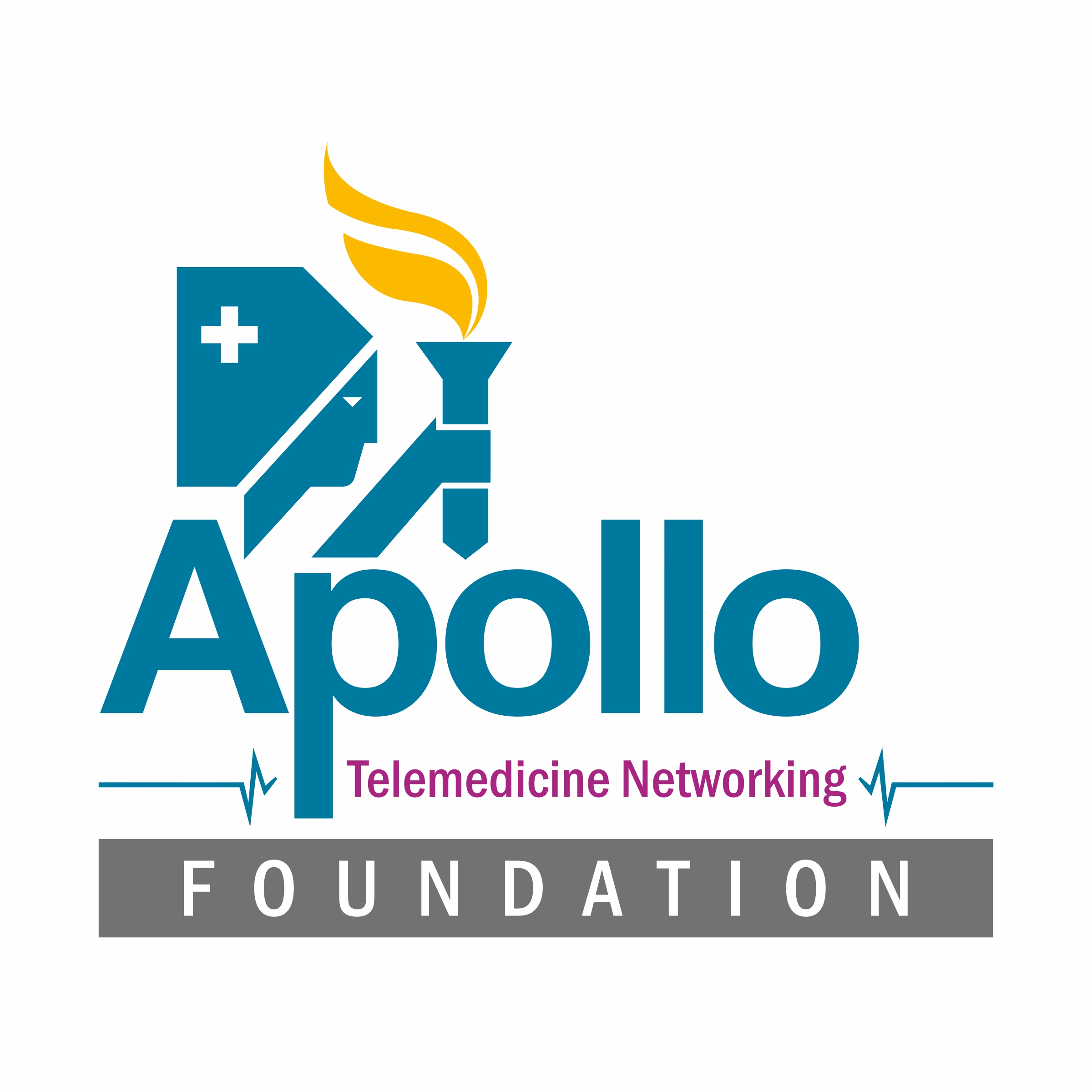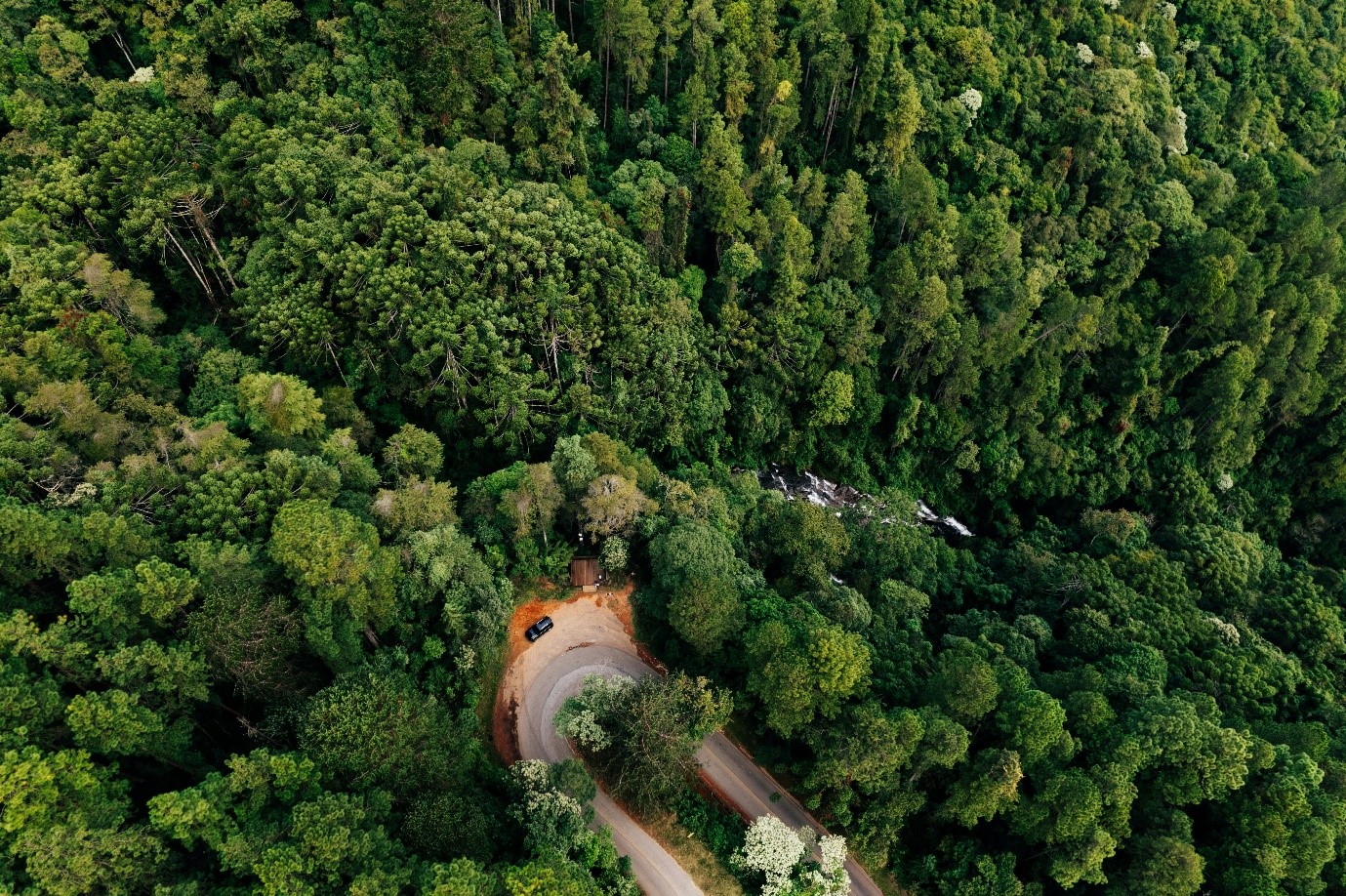



Sustainability is the foundation of our business strategy. Our approach to sustainability centres on four key pillars:Climate, Nature, Plastics, and Livelihoods. Additionally, we drive several other marquee sustainability initiatives that benefit communities and align with India’s development priorities.
We are committed to driving Unilever’s ambitious sustainability goals, ensuring that our collective journey is focused, action-oriented and has outcomes that bring about systemic and transformational change. Respect for Human Rights that fosters inclusivity, fairness and dignity underpins all our sustainability goals and initiatives.
Net Zero emissions across our value chain by 2039.
Resilient and regenerative natural and agricultural ecosystems.
An end to plastic pollution through reduction, circulation and collaboration.
A decent livelihoods for people in our value chain, including by earning a living wage.
(Global Unilever sustainability goals)
Our work on climate action covers reducing environmental footprint within our operations and value chain. We are also driving systemic change in wider society through collaborations and partnerships as we stay committed to supporting India’s sustainable development goals.

reduction in total energy consumption.
(GJ/tonne of production)

reduction in scope 1, 2
emissions.
(Kg/tonne of production)

reduction in water use within our factories.

reduction in total waste generated from factories.
(Kg/tonne of production)

With the launch of a path-breaking innovation 'Stratos' we have marked a significant transformation in our soap bars business. It has helped us reduce the use of high GHG-impact palm oil and move to deforestation-free Palm.
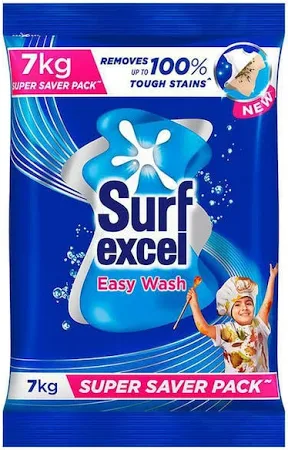
We have partnered with Tuticorin Alkali Chemicals and Fertilisers Limited and Carbon Clean Solutions for procurement of sustainable soda ash (Sodium Carbonate), a key ingredient for our detergent brands.
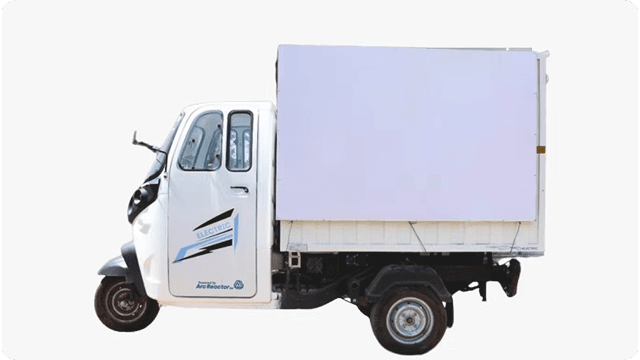
Our ‘Load more, travel less’ strategy has helped enhance fuel-efficiency and reduce emissions in our transportation and logistics. We have also integrated EVs in our last mile operations and are exploring use of natural gas for our logistics.
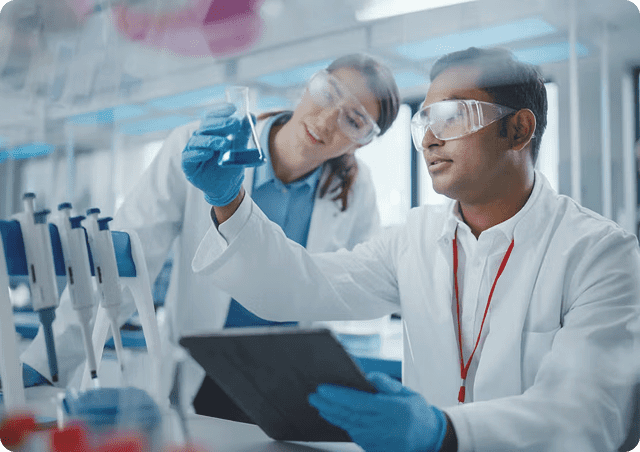
We are collaborating with the government-led Resource Efficiency and Circular Economy Industry Coalition (RECEIC) to accelerate material transition in the chemical industry and reduce virgin fossil use. As the chair of an RECEIC working group, HUL has developed a roadmap for this transition and co-published a white paper recommending technology and policy focus areas. This initiative supports India's Panchamrit Framework for climate action and Mission LiFE for environmental awareness.
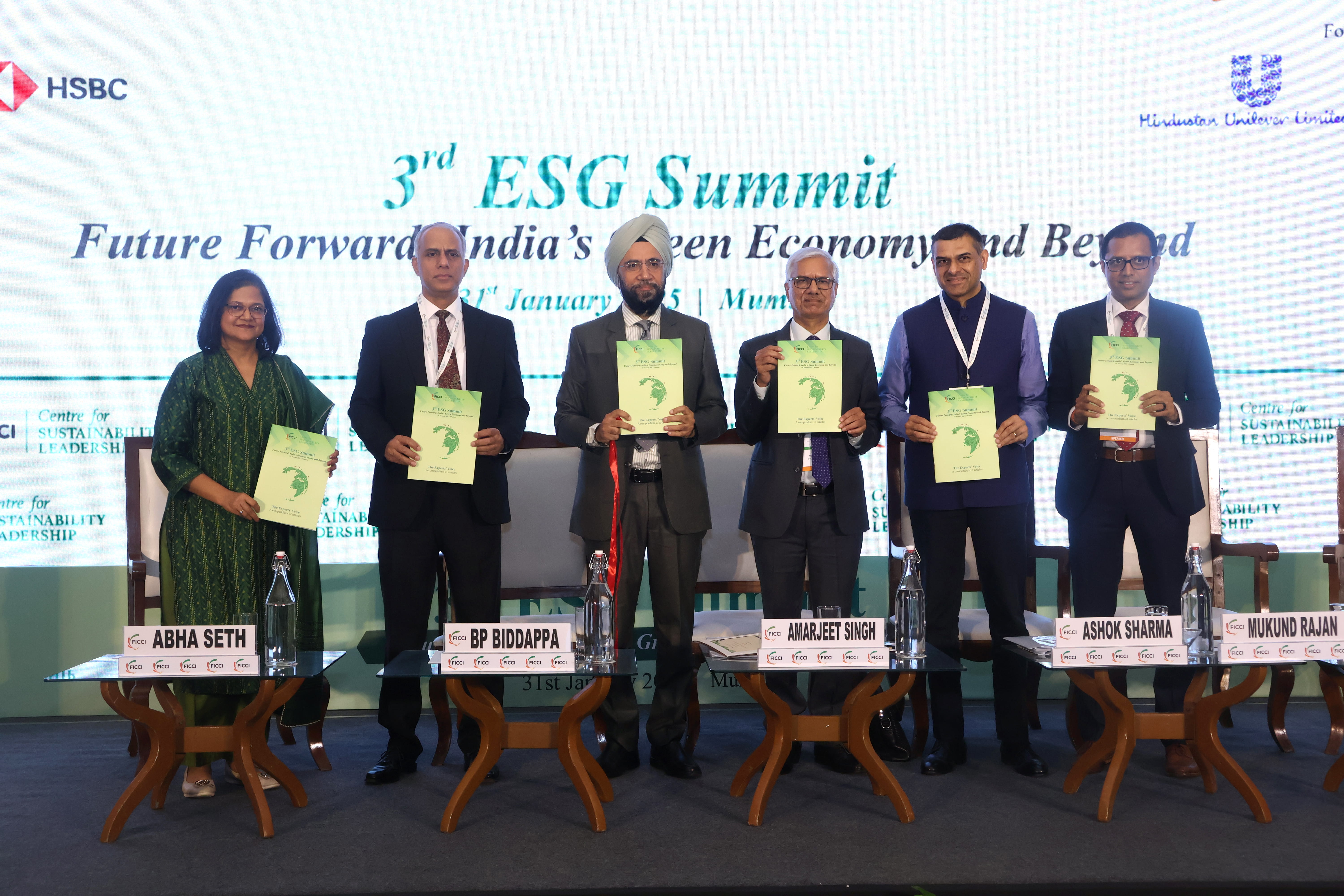
HUL and the Federation of Indian Chambers of Commerce and Industry (FICCI) have partnered to launch the Centre for Sustainability Leadership. Through this, we are supporting the Indian corporate sector’s climate action journey by institutionalising sustainability leadership across FICCI members.
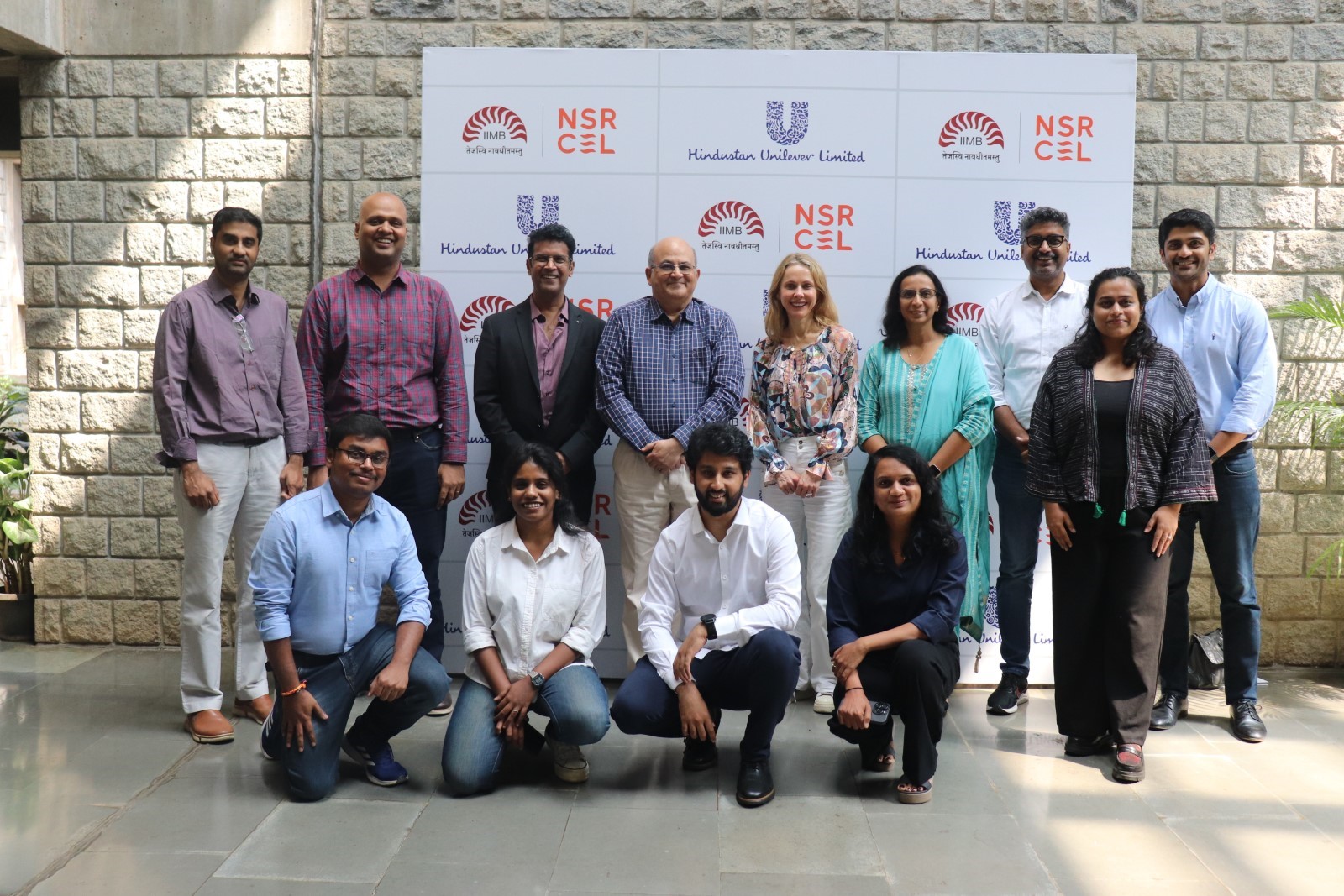
HUL has partnered with IIM Bangalore’s startup hub, NSRCEL to launch the Climate Incubation Hub. Through this unique collaboration between Industry and academia, we aim to nurture Indian startups working on climate action and support them in accelerating the pace of transformational and scalable climate innovations.
We work closely with smallholder farmers and ensure that they receive training and adopt good agricultural practices, resulting in significantly higher yields and better returns. We also work to reduce consumption in our operations and strive to make a wider societal impact through our water stewardship initiatives.
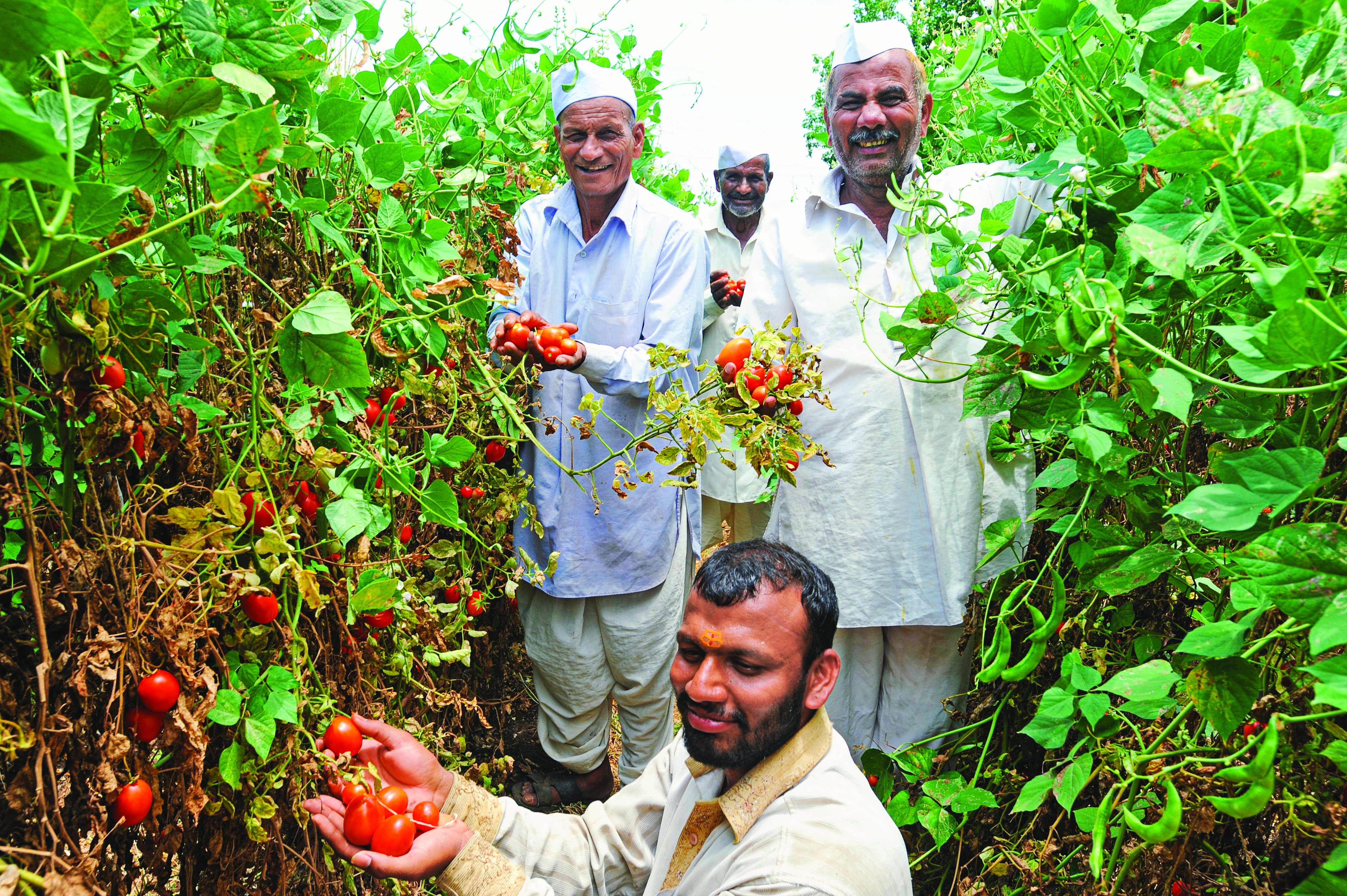
of land under regenerative agricultural practices in our value chain.
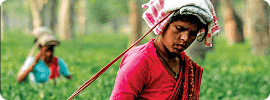
of 12 key agricultural crops sourced sustainably.

deforestation-free supply chain in palm oil, paper and board,
tea, soy and cocoa.
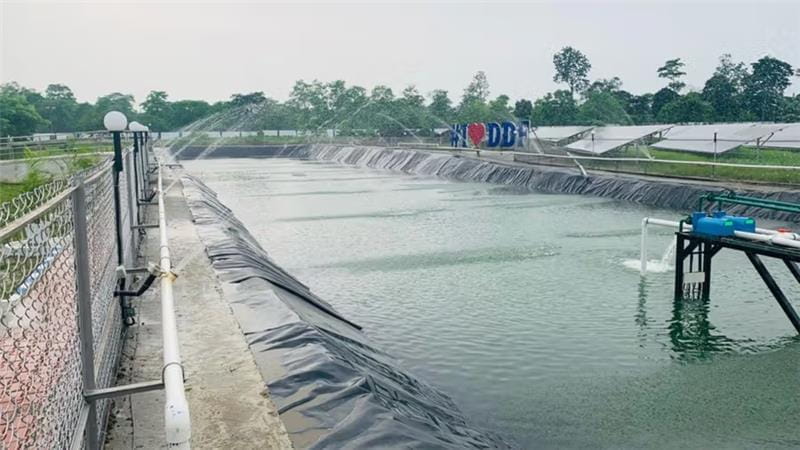
reduction in total water consumption in our factories.
(Against 2008 baseline. For HUL, including
subsidiaries)
Hindustan Unilever Foundation (HUF) along with its partners are driving water resilience across India through the ‘Water for Public Good’ programme. By empowering communities, restoring ecosystems, and promoting sustainable farming, HUF has unlocked trillions of litres of cumulative water potential, boosted rural livelihoods, and established a collaborative model for long-term water security in over 15,500 villages.

of cumulative water potential created.
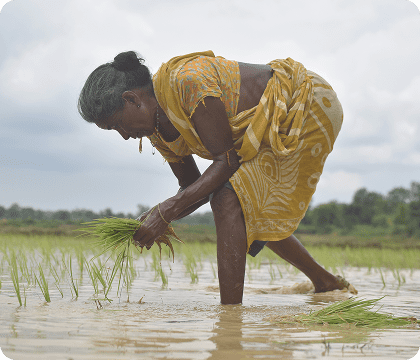
of agricultural and biomass output produced.
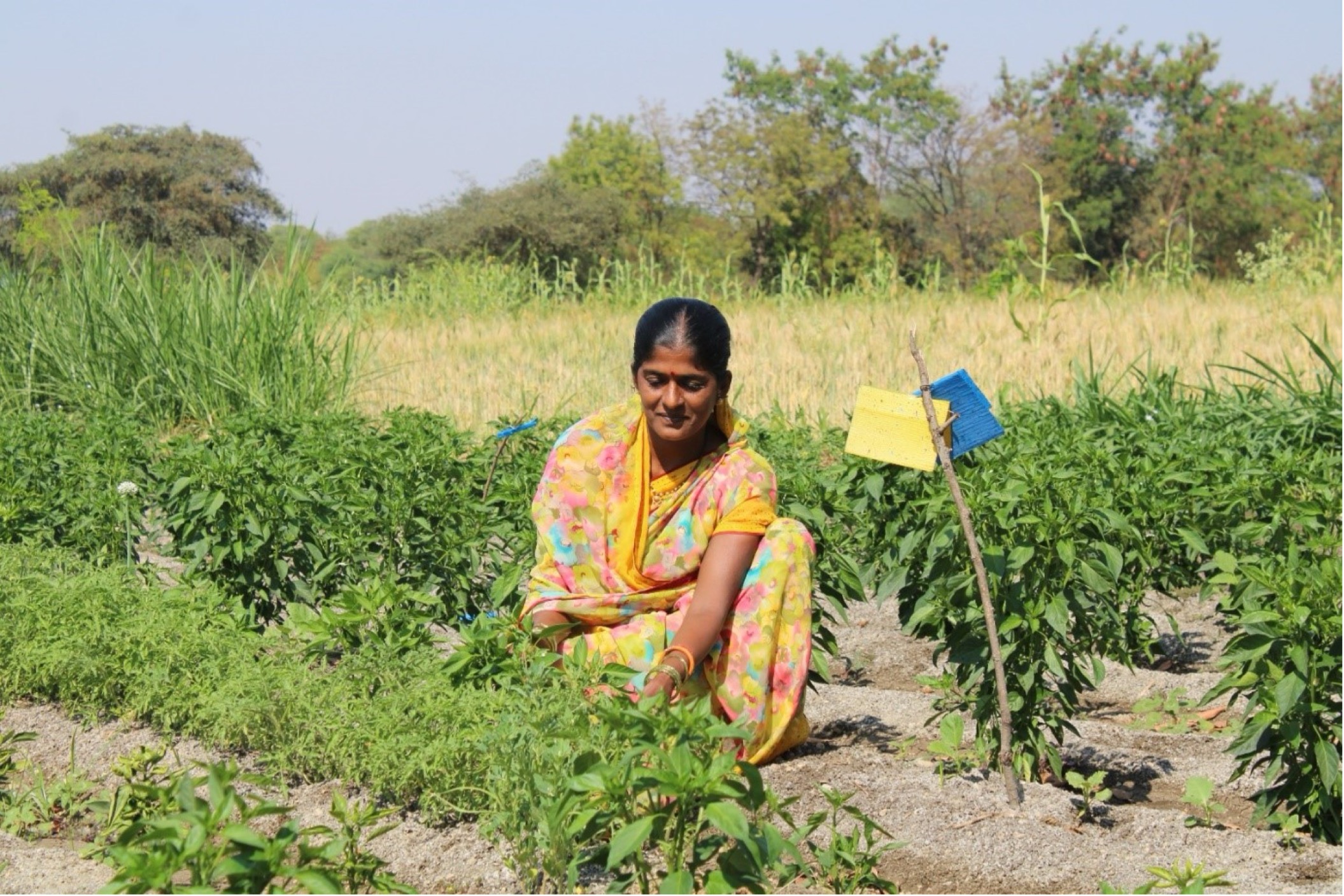
person-days of employment generated.
We are one of the first companies in India to collect and responsibly process more plastic than we use in the packaging of our finished goods since 2021 and we continue to do so year on year. Our ‘Less, Better, No’ plastic framework continues to guide our sustainable packaging journey and as a result of our efforts, we are increasingly replacing virgin plastic with post-consumer recycled (PCR) plastic for packaging of our brands. For several years HUL has also been at the forefront fostering recyclers, nurturing startups, and championing sustainable practices with an aim to enhance circularity of plastic waste.
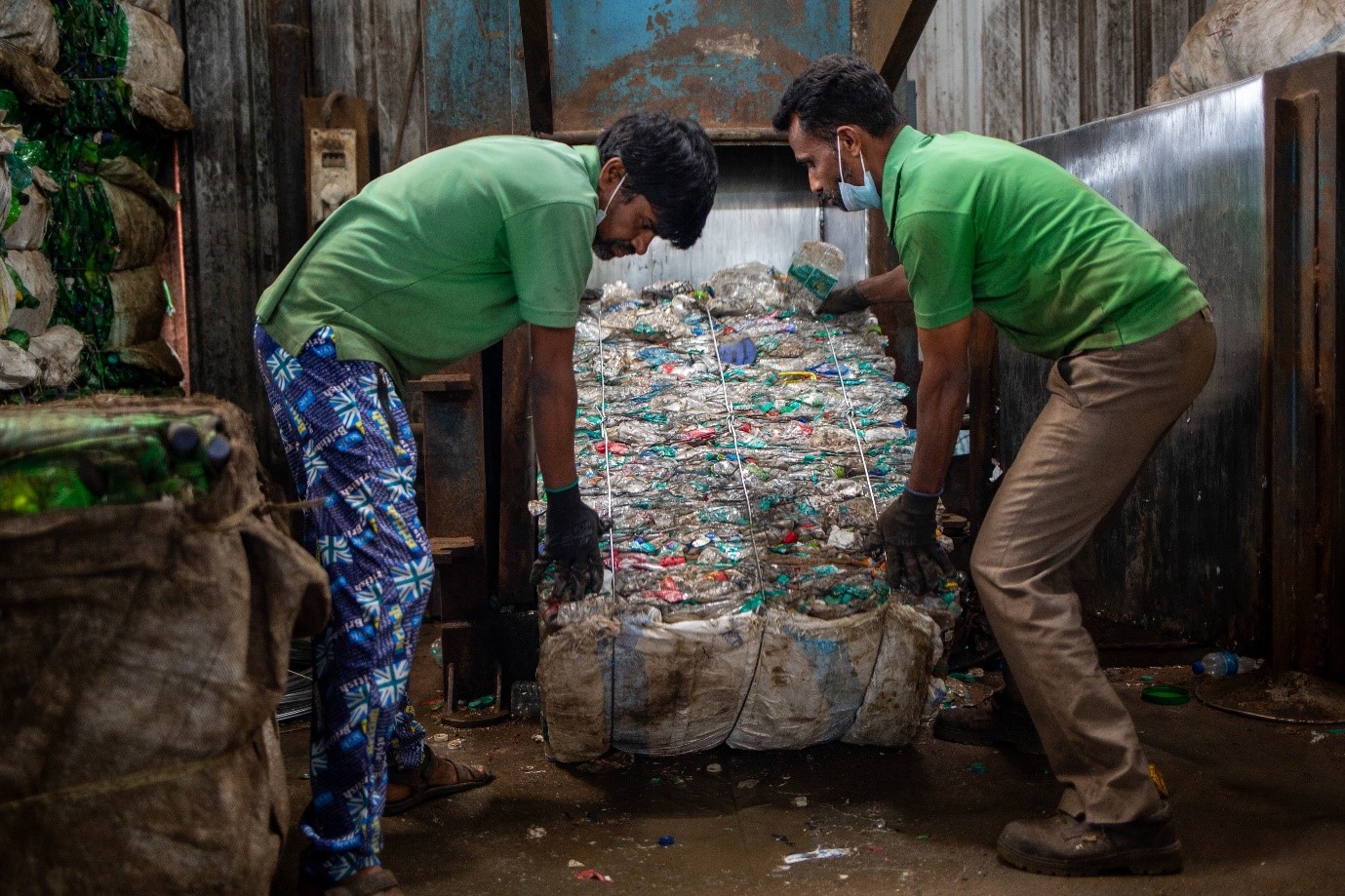
EPR Compliant.
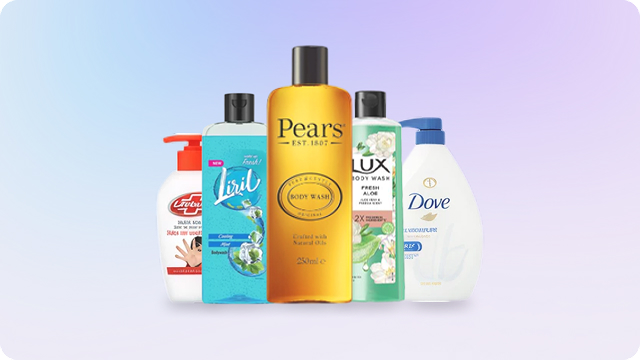
use Post Consumer Recycled (PCR) plastic in packaging, enabling circularity systems.
In a groundbreaking collaboration with Banyan Nation, we achieved a significant milestone by incorporating PCR into our bottles for the first time in India and since then have been expanding post-consumer recycled (PCR) content inclusion across all our brands.
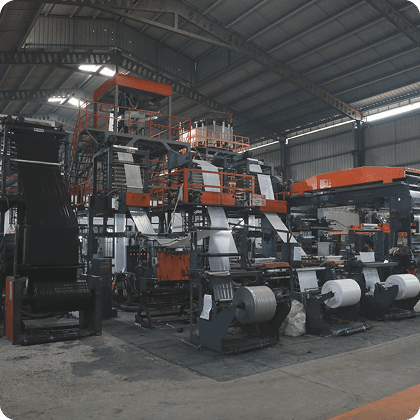
We have pioneered using Post-Consumer Recycled (PCR) materials in our flexible packaging, such as pouches, overwraps, and shrink-wraps. In March 2025, we strengthened our commitment to circularity by acquiring a stake in Lucro Plastecycle Private Limited, a firm specialising in recycled flexible plastics to further the inclusion of PCR in our packaging.
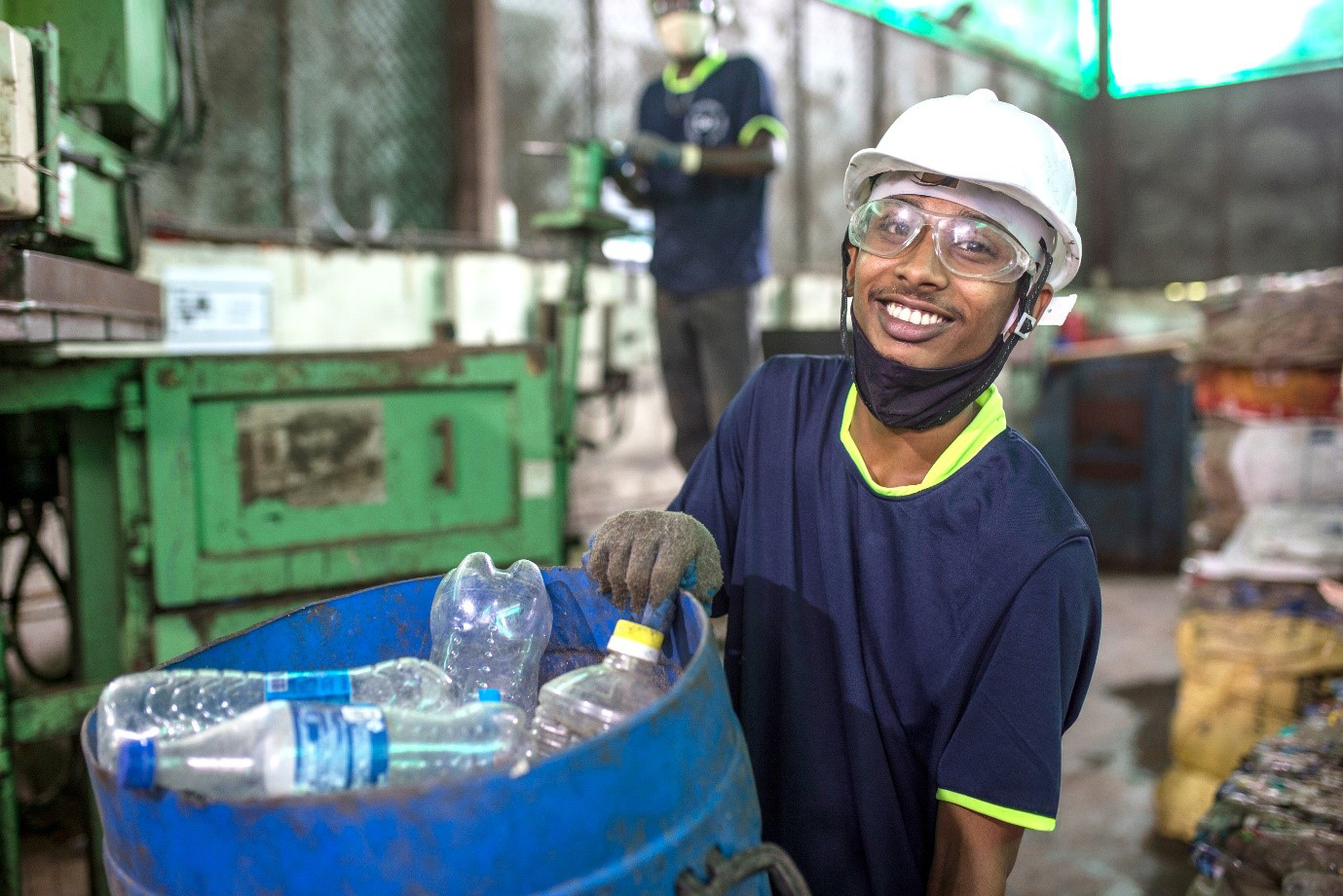
Project Circular Bharat is our end-to-end model that connects three
critical levers: behaviour change to inspire source segregation,
social inclusion of waste workers and integrated recycling
infrastructure to establish a circular system.
Anchored in innovation and a solutions-led approach, Project
Circular Bharat is powered by a robust network of partnerships,
bringing together 20+ partners across 10+ Indian cities.
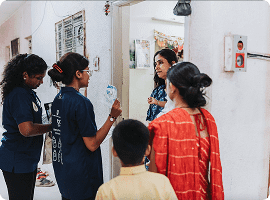
inspired to segregate waste at source.
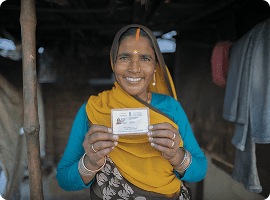
have access to social protection schemes through our dignified livelihood program with UNDP India.
operational across Maharashtra, processing 7,000 metric tonnes of waste annually.
At HUL we work towards upskilling people, enabling livelihoods and creating equal opportunities for all in our business, value chain and within the communities we operate.
Project Shakti is our flagship initiative designed to empower women in rural India by creating sustainable livelihood opportunities. Project Shakti empowers rural women through entrepreneurship training for financial independence fostering economic growth at the grassroots level.
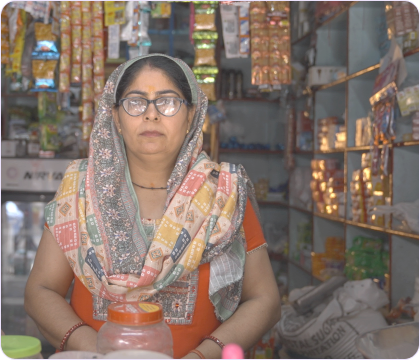
entrepreneurs in our Shakti network.
Our Skills Academy for Advancement of Livelihoods (SAFAL) has impacted
youth through skill development, entrepreneurship, and inclusive livelihood
initiatives.
Together with our partners, we have enabled employment, trained persons with
disabilities, formalised kirana stores, and built a strong foundation for
sustainable economic empowerment.

empowered across 20+ states across India.
From improving community hygiene and sanitation to creating sustainable communities around our factories and driving behavioural change, we work towards innovating and amplifying efforts in areas that have a significant environmental and societal impact.
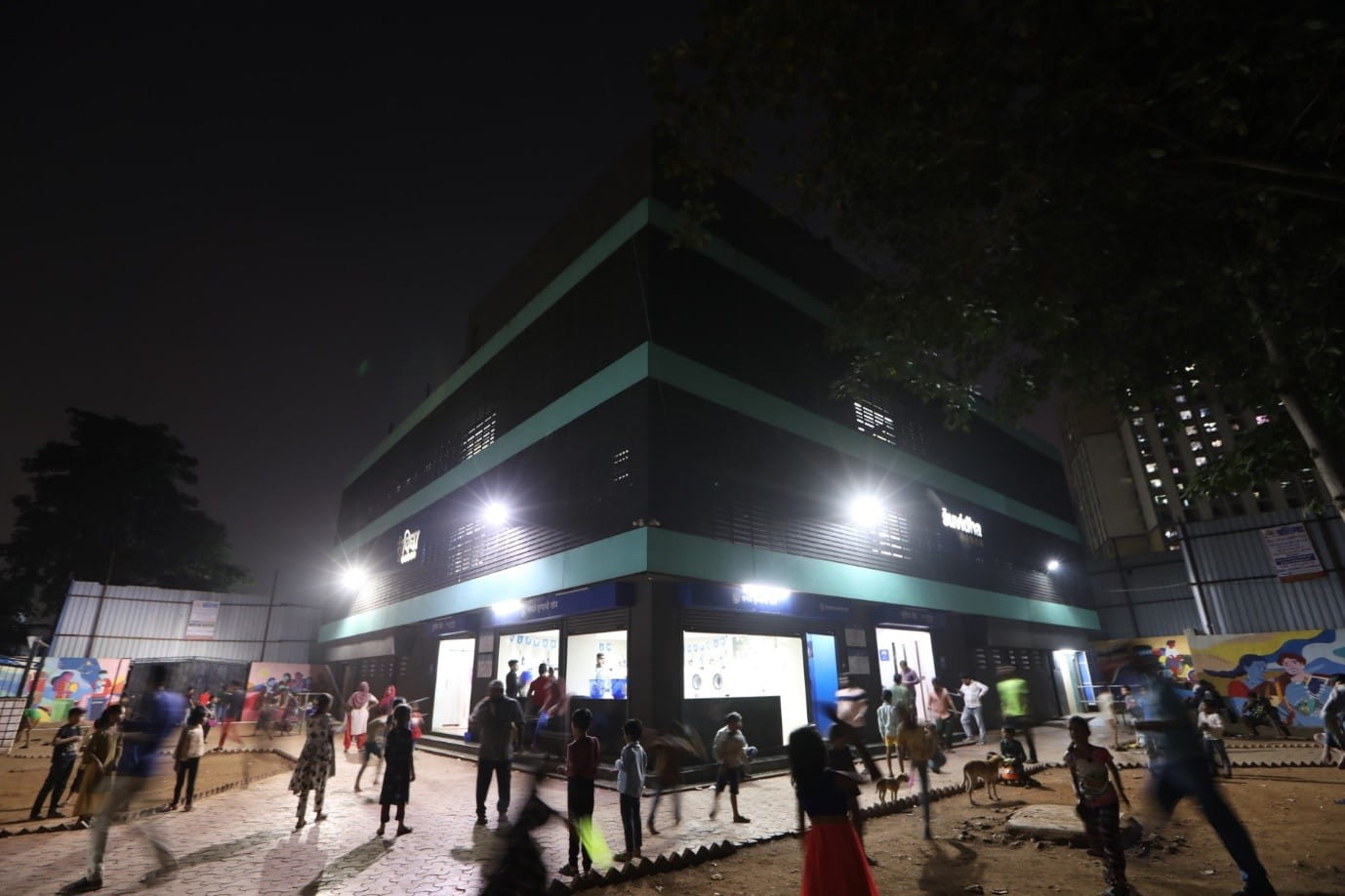
Suvidha Centre is a pioneering, sustainable, and scalable urban hygiene and sanitation model for community use. It provides affordable access to clean toilets, purified drinking water, showers, and laundry services for residents of informal settlements in Mumbai.
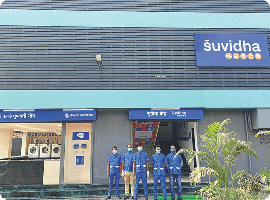
operational so far in Mumbai.
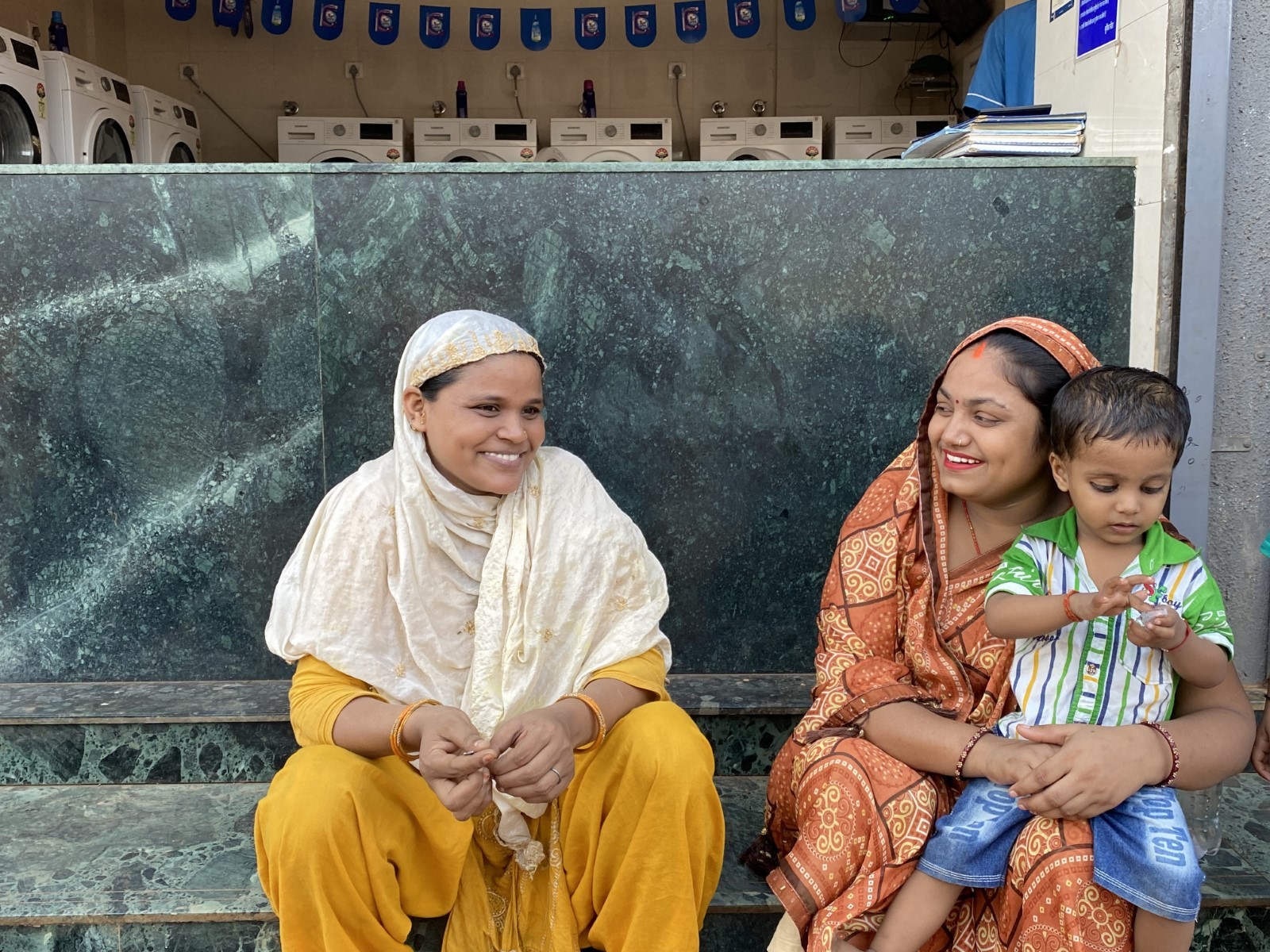
benefit annually.
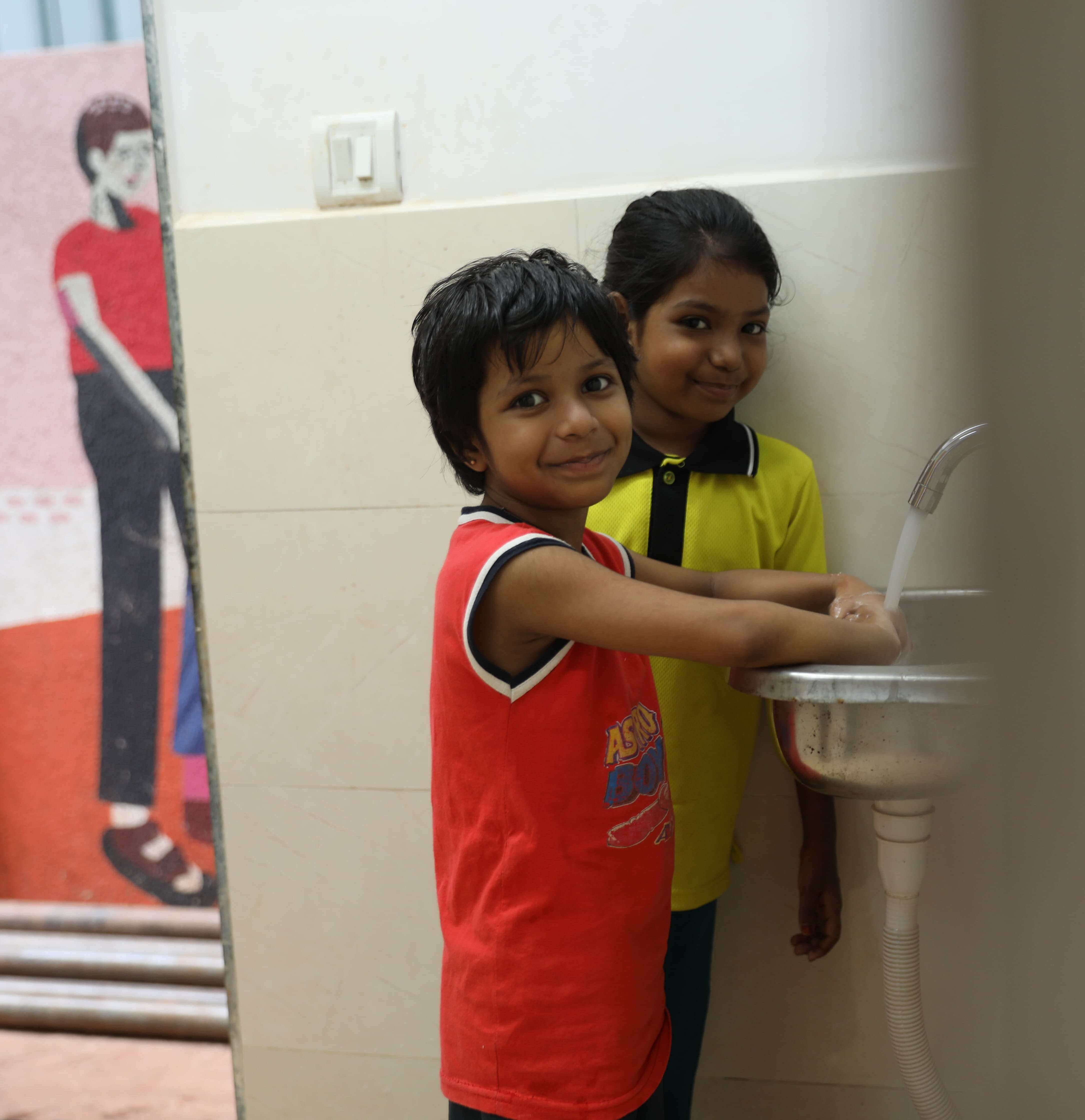
of water saved through integration of water-saving technologies.
Prabhat, our sustainable community development initiative started in 2013 to empower communities around HUL’s manufacturing and depot sites in India. What started as a livelihood enhancement initiative in the early days is now a holistic community development programme focused on three thematic areas:
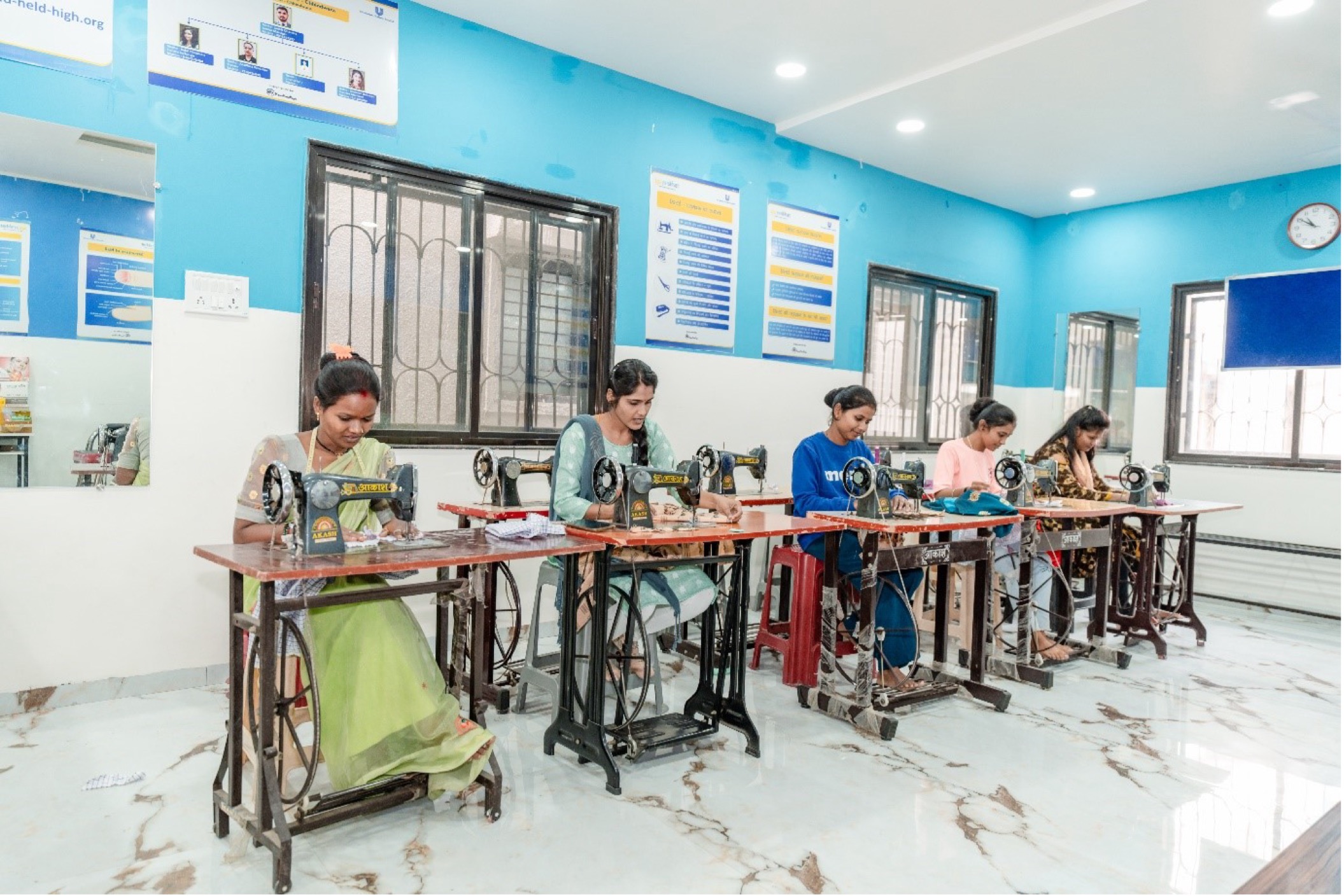
reached through Prabhat.
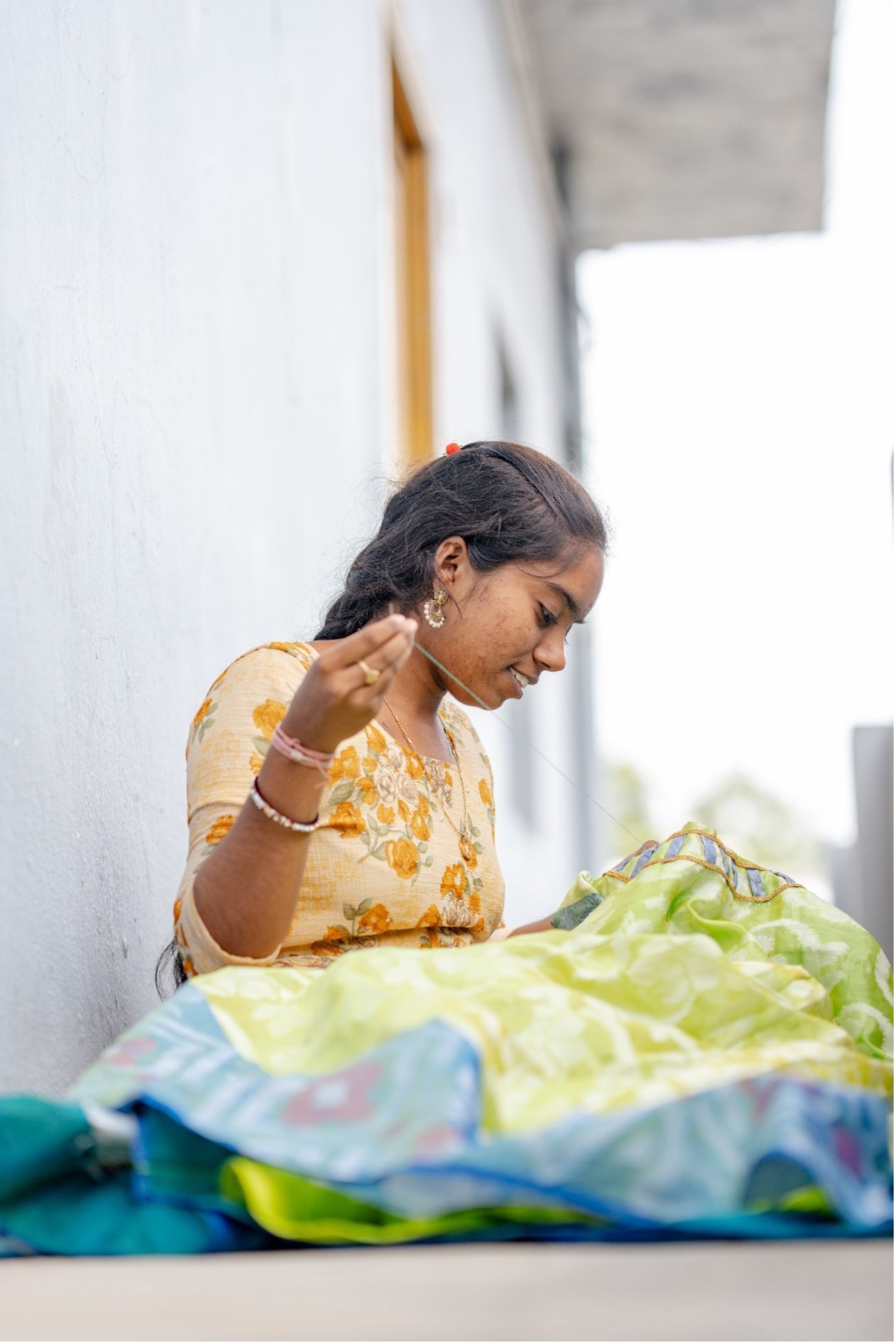
beneffited from skill development initiatives.

have secured employment.
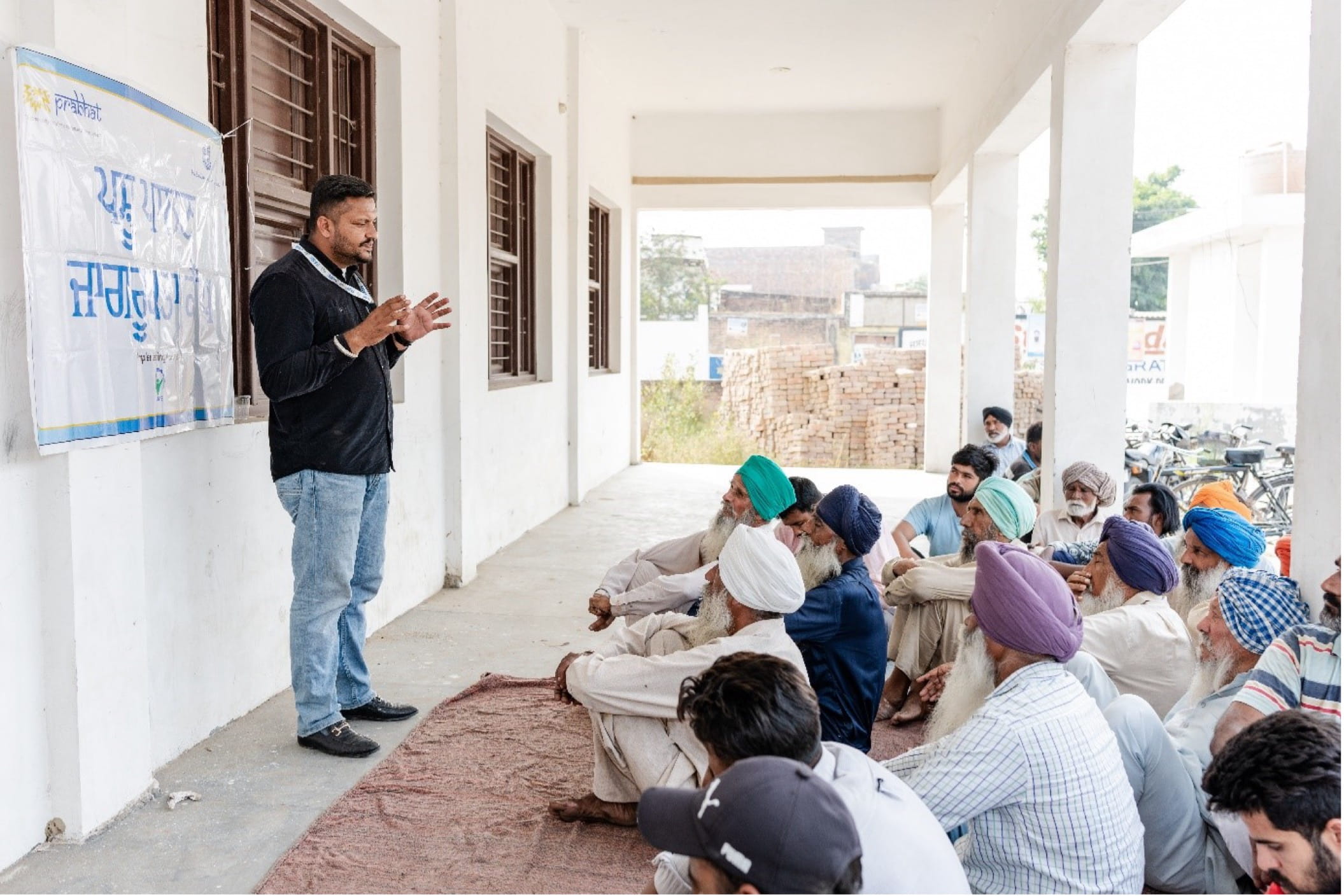
beneffited through farm-based value chain initiatives.
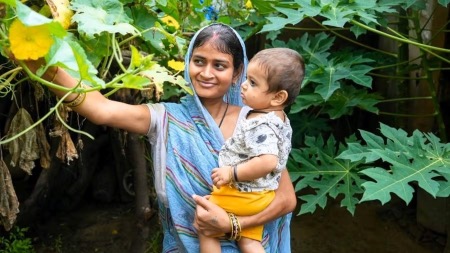
reached through Prabhat’s nutrition programme.
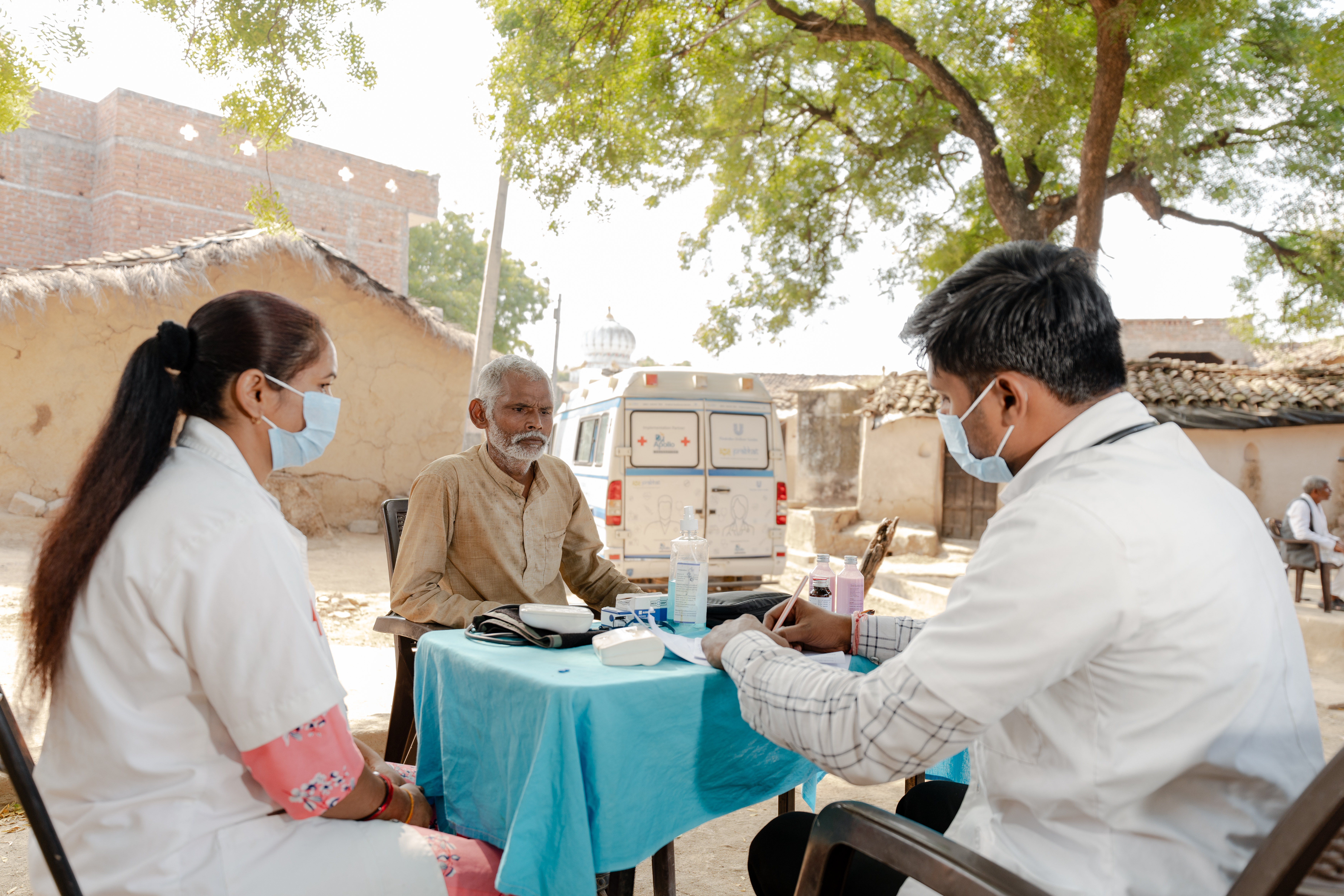
reached through Prabhat’s mobile medical van.
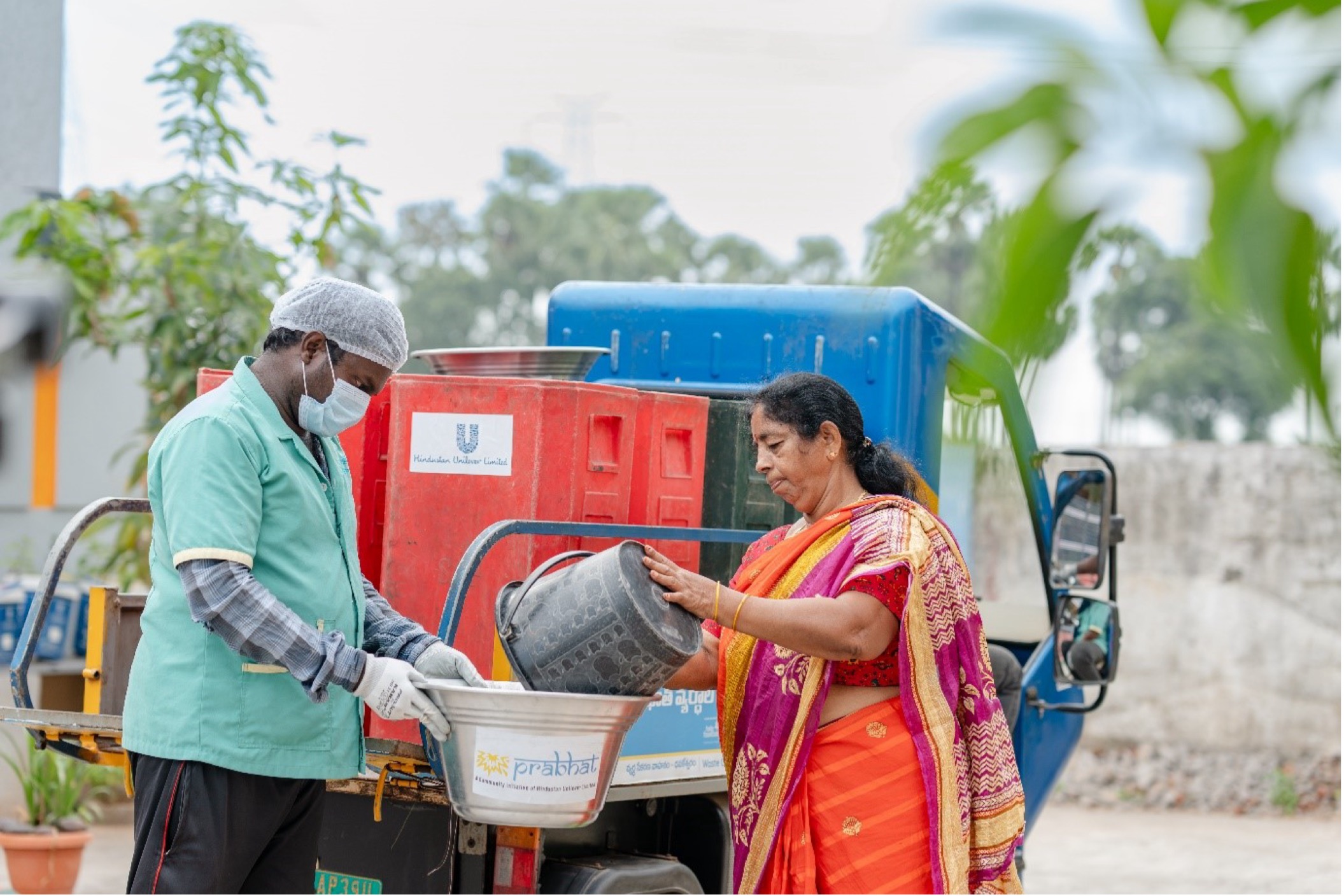
of waste collected and managed near 8 factories.
Our Swasthya Curriculum behaviour change programme was created intending to teach children in classes 1-5 the importance of adopting four key hygiene and wellbeing habits: washing hands with soap, eating nutrition-rich meals, drinking safe water and using clean toilets. The curriculum is aligned with the Government of India’s Swachh Bharat Abhiyaan and Poshan Abhiyaan.

reached since 2018.
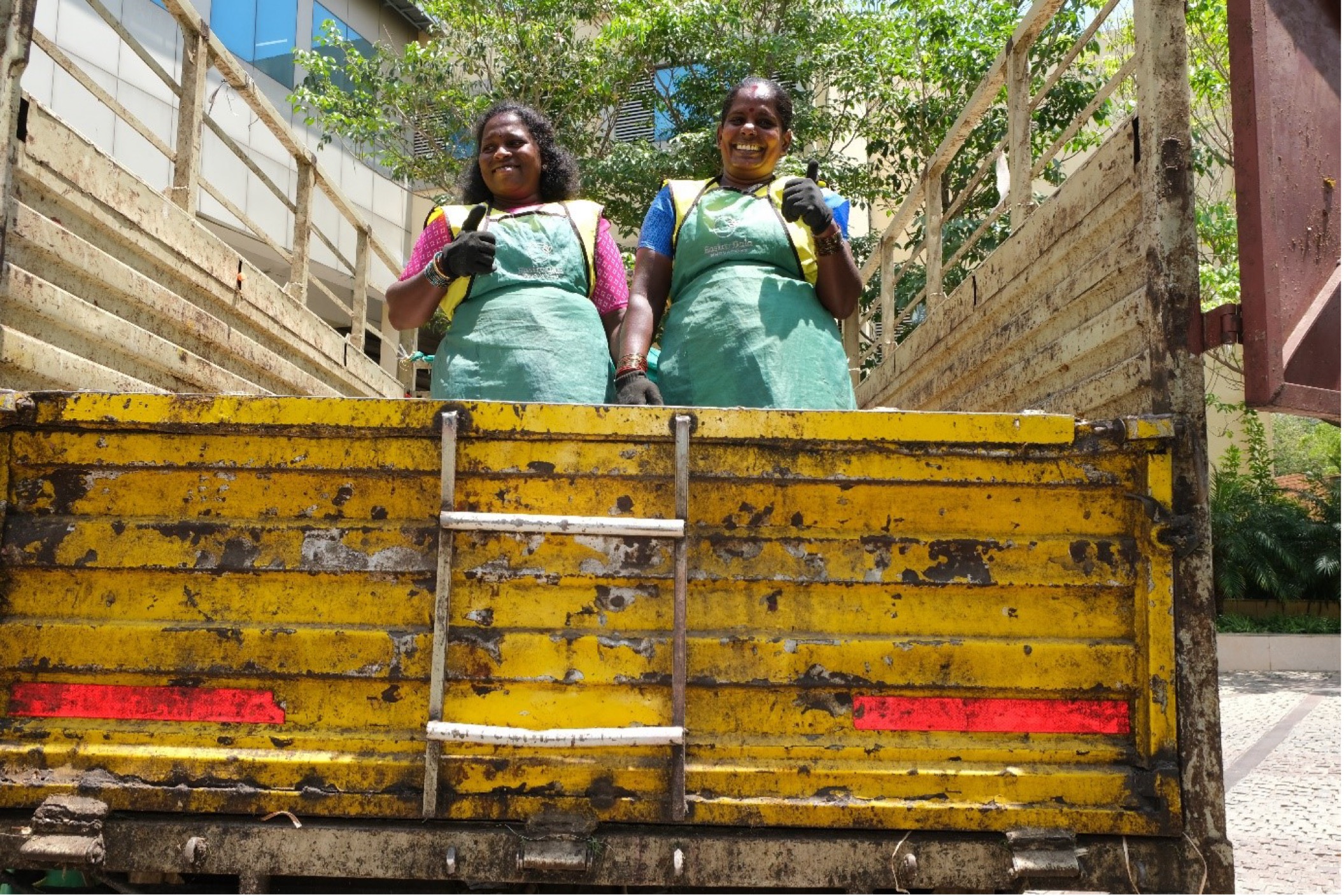
TRANSFORM led by Unilever, the UK’s Foreign, Commonwealth and Development Office, and Ernst & Young (EY), is an impact accelerator program launched in 2015 that brings together corporates, donors, investors, and academics to support visionary enterprises across Africa, Asia, and beyond. The efforts of TRANSFORM aim to increase livelihoods, improve health, implement regenerative agriculture practices, and create new models for plastic recycling and refilling.
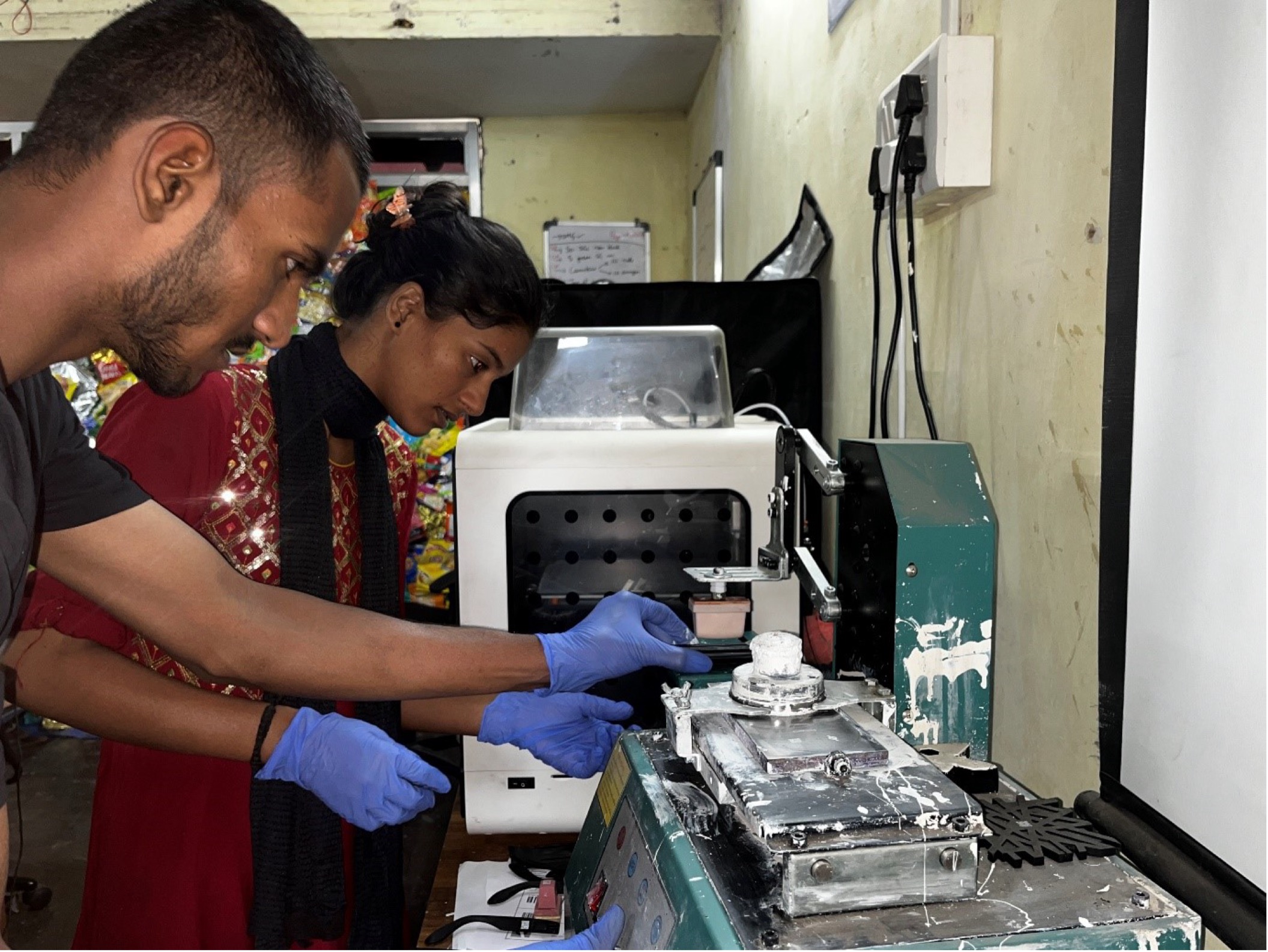
funded by TRANSFORM in India.
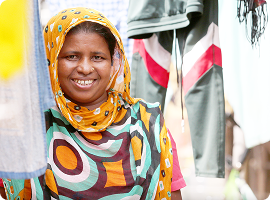
positively impacted.
Our work on climate action covers reducing environmental footprint within our operations and value chain, driving systemic change in wider society through collaborations and partnerships and supporting India’s sustainable development goals.

reduction in total energy consumption.
(GJ/tonne of production)

reduction in scope 1, 2
emissions.
(Kg/tonne of production)

reduction in water use within our factories.

reduction in total waste generated from factories.
(Kg/tonne of production)

With the launch of a path-breaking innovation 'Stratos' we have marked a significant transformation in our soap bars business. It has helped us reduce the use of high GHG-impact palm oil and move to deforestation-free Palm.

We have partnered with Tuticorin Alkali Chemicals and Fertilisers Limited and Carbon Clean Solutions for procurement of sustainable soda ash (Sodium Carbonate), a key ingredient for our detergent brands.

Our ‘Load more, travel less’ strategy has helped enhance fuel-efficiency and reduce emissions in our transportation and logistics. We have also integrated EVs in our last mile operations and are exploring use of natural gas for our logistics.

We are collaborating with the government-led Resource Efficiency and Circular Economy Industry Coalition (RECEIC) to accelerate material transition in the chemical industry and reduce virgin fossil use. As the chair of an RECEIC working group, HUL has developed a roadmap for this transition and co-published a white paper recommending technology and policy focus areas. This initiative supports India's Panchamrit Framework for climate action and Mission LiFE for environmental awareness.

HUL and the Federation of Indian Chambers of Commerce and Industry (FICCI) have partnered to launch the Centre for Sustainability Leadership. Through this, we are supporting the Indian corporate sector’s climate action journey by institutionalising sustainability leadership across FICCI members.

HUL has partnered with IIM Bangalore’s startup hub, NSRCEL to launch the Climate Incubation Hub. Through this unique collaboration between Industry and academia, we aim to nurture Indian startups working on climate action and support them in accelerating the pace of transformational and scalable climate innovations.
We work closely with smallholder farmers and ensure that they receive training and adopt good agricultural practices, resulting in significantly higher yields and better returns. We also work to reduce consumption in our operations and strive to make a wider societal impact through our water stewardship initiatives.

of land under regenerative agricultural practices in our value chain.

of 12 key agricultural crops sourced sustainably.

deforestation-free supply chain in palm oil, paper and board,
tea, soy and cocoa.

reduction in total water consumption in our factories.
(Against 2008 baseline. For HUL,
including subsidiaries)
Hindustan Unilever Foundation (HUF) along with its partners are driving water resilience across India through the ‘Water for Public Good’ programme. By empowering communities, restoring ecosystems, and promoting sustainable farming, HUF has unlocked trillions of litres of cumulative water potential, boosted rural livelihoods, and established a collaborative model for long-term water security in over 15,500 villages.

of cumulative water potential created.

of agricultural and biomass output produced.

person-days of employment generated.
We are one of the first companies in India to collect and responsibly process more plastic than we use in the packaging of our finished goods since 2021 and we continue to do so year on year. Our ‘Less, Better, No’ plastic framework continues to guide our sustainable packaging journey and as a result of our efforts, we are increasingly replacing virgin plastic with post-consumer recycled (PCR) plastic for packaging of our brands. For several years HUL has also been at the forefront fostering recyclers, nurturing startups, and championing sustainable practices with an aim to enhance circularity of plastic waste.

EPR compliant.

use Post Consumer Recycled (PCR) plastic in packaging, enabling circularity systems.
In a groundbreaking collaboration with Banyan Nation, we achieved a significant milestone by incorporating PCR into our bottles for the first time in India and since then have been expanding post-consumer recycled (PCR) content inclusion across all our brands.

We have pioneered using Post-Consumer Recycled (PCR) materials in our flexible packaging, such as pouches, overwraps, and shrink-wraps. In March 2025, we strengthened our commitment to circularity by acquiring a stake in Lucro Plastecycle Private Limited, a firm specialising in recycled flexible plastics to further the inclusion of PCR in our packaging.

Project Circular Bharat is our end-to-end model that
connects three critical levers: behaviour change to inspire
source segregation, social inclusion of waste workers and
integrated recycling infrastructure to establish a circular
system.
Anchored in innovation and a solutions-led approach, Project
Circular Bharat is powered by a robust network of
partnerships, bringing together 20+ partners across 10+
Indian cities.

inspired to segregate waste at source.

have access to social protection schemes through our dignified livelihood program with UNDP India.
operational across Maharashtra, processing 7,000 metric tonnes of waste annually.
At HUL we work towards upskilling, creating livelihoods and enabling equal opportunities for all in our business and within the communities we operate.
Project Shakti is our flagship initiative designed to empower women in rural India by creating sustainable livelihood opportunities. Project Shakti empowers rural women through entrepreneurship training for financial independence fostering economic growth at the grassroots level.

entrepreneurs in our Shakti network.
Our Skills Academy for Advancement of Livelihoods (SAFAL)
has impacted youth through skill development, entrepreneurship, and
inclusive livelihood initiatives.
Together with our partners, we have enabled employment, trained persons with
disabilities, formalised kirana stores, and built a strong foundation for
sustainable economic empowerment.

empowered across 20+ states across India.
From improving community hygiene and sanitation to creating sustainable communities around our factories and driving behavioural change, we work towards innovating and amplifying efforts in areas that have a significant environmental and societal impact.

Suvidha Centre is a pioneering, sustainable, and scalable urban hygiene and sanitation model for community use. It provides affordable access to clean toilets, purified drinking water, showers, and laundry services for residents of informal settlements in Mumbai.

operational so far in Mumbai.

benefit annually.

of water saved through integration of water-saving technologies.
Prabhat, our sustainable community development initiative started in 2013 to empower communities around HUL’s manufacturing and depot sites in India. What started as a livelihood enhancement initiative in the early days is now a holistic community development programme focused on three thematic areas:

reached through Prabhat.

beneffited from skill development initiatives.

have secured employment.

beneffited through farm-based value chain initiatives.

reached through Prabhat’s nutrition programme.

reached through Prabhat’s mobile medical van.

of waste collected and managed near 8 factories.
Our Swasthya Curriculum behaviour change programme was created intending to teach children in classes 1-5 the importance of adopting four key hygiene and wellbeing habits: washing hands with soap, eating nutrition-rich meals, drinking safe water and using clean toilets. The curriculum is aligned with the Government of India’s Swachh Bharat Abhiyaan and Poshan Abhiyaan.

reached since 2018.

TRANSFORM led by Unilever, the UK’s Foreign, Commonwealth and Development Office, and Ernst & Young (EY), is an impact accelerator program launched in 2015 that brings together corporates, donors, investors, and academics to support visionary enterprises across Africa, Asia, and beyond. The efforts of TRANSFORM aim to increase livelihoods, improve health, implement regenerative agriculture practices, and create new models for plastic recycling and refilling.

funded by TRANSFORM in India.

positively impacted.









































